Filter by
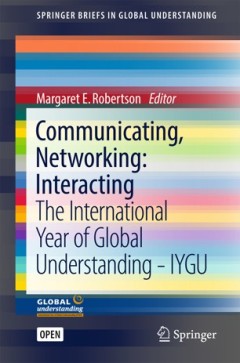
Communicating, Networking : Interacting The International Year of Global Unde…
This book illustrates the benefits to be gained from digitally networked communication for health, education and transitioning economies in developing nations (Sierra Leone and Papua New Guinea) and developed nations. Growing powers of e-citizenship can help build sustainable futures. This small volume provides a collection of examples and ideas from which the authors hope will help build a wid…
- Edition
- -
- ISBN/ISSN
- 9783319454719
- Collation
- XV, 77 p.
- Series Title
- -
- Call Number
- 302.23 COM c
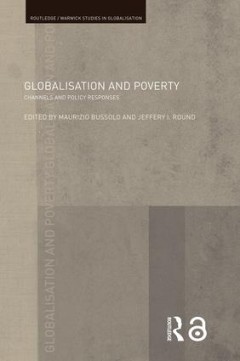
Globalisation and poverty : channels and policy responses
The consequences of globalization for the world's poor are uncertain and fierce rhetoric is dividing its supporters and detractors. The channels of effect of essentially macroeconomic shocks on the microeconomic position of individuals and households in poor countries are many and various. This book addresses three core issues: 1) what are the main channels of effect? 2) what are the lessons…
- Edition
- -
- ISBN/ISSN
- 9780203088333
- Collation
- xviii, 232p. : ill.
- Series Title
- -
- Call Number
- 339.46091724 GLO g
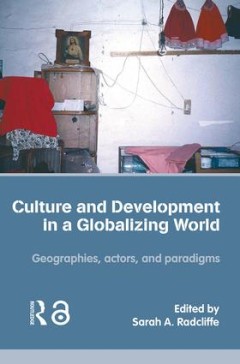
Culture and development in a globalizing world : geographies, actors, and par…
Using recent research on development projects around the world, this book argues that culture has become an explicit tool and framework for development discourse and practice. Providing a theoretical and empirically informed critique, this informative book includes conceptual overviews and case studies on topics such as: development for indigenous people natural resource management …
- Edition
- -
- ISBN/ISSN
- 9780203641019
- Collation
- xiv, 280p. : ill.
- Series Title
- -
- Call Number
- 306.3091724 CUL c
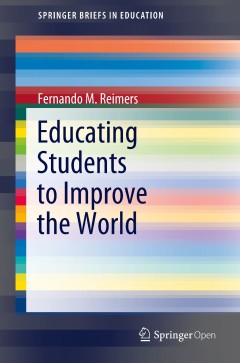
Educating students to improve the world
This open access book addresses how to help students find purpose in a rapidly changing world. In a probing and visionary analysis of the field of global education Fernando Reimers explains how to lead the transformation of schools and school systems in order to more effectively prepare students to address today’s’ most urgent challenges and to invent a better future. Offering a comprehensi…
- Edition
- -
- ISBN/ISSN
- 9789811538872
- Collation
- x, 131p. : ill.
- Series Title
- -
- Call Number
- 370.116 REI e
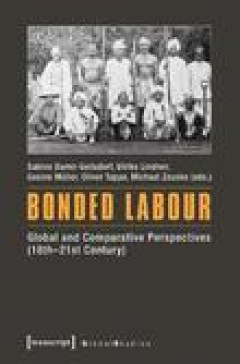
Bonded labour: global and comparative perpective (18th-21st century)
Parallel to the abolition of Atlantic slavery, new forms of indentured labour stilled global capitalisms need for cheap, disposable labour. The famous coolie trade – mainly Asian labourers transferred to French and British islands in the Indian Ocean, Australia, Indonesia, South Africa, the Caribbean, the Americas, as well as to Portuguese colonies in Africa – was one of the largest migrati…
- Edition
- -
- ISBN/ISSN
- 9783839437339
- Collation
- 233p.: ill.
- Series Title
- -
- Call Number
- 331.1173 BON b
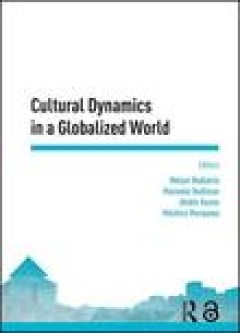
Cultural Dynamics in a Globalized World
The book contains essays on current issues in arts and humanities in which peoples and cultures compete as well as collaborate in globalizing the world while maintaining their uniqueness as viewed from cross- and inter-disciplinary perspectives. The book covers areas such as literature, cultural studies, archaeology, philosophy, history, language studies, information and literacy studies, and a…
- Edition
- -
- ISBN/ISSN
- 9781315225340
- Collation
- XII, 930 p.
- Series Title
- -
- Call Number
- 700.103 CUL c
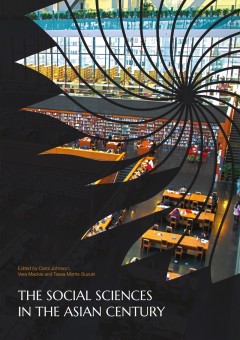
The social sciences in the Asian century
In this collection of essays, we reflect on what it means to practise the social sciences in the twenty-first century. The book brings together leading social scientists from the Asia-Pacific region. We argue for the benefit of dialogue between the diverse theories and methods of social sciences in the region, the role of the social sciences in addressing real-world problems, the need to transc…
- Edition
- -
- ISBN/ISSN
- 9781925022599
- Collation
- xi, 213p. : ill.
- Series Title
- -
- Call Number
- 300.95 SOC s
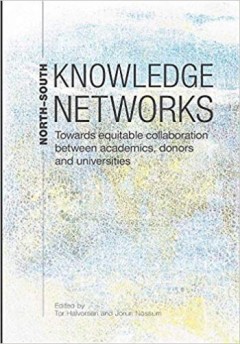
North-South knowledge networks : towards equitable collaboration between acad…
Since the 1990s, internationalisation has become key for institutions wishing to secure funding for higher education and research. For the academic community, this strategic shift has had many consequences. Priorities have changed and been influenced by new ways of thinking about universities, and of measuring their impact in relation to each other and to their social goals. Debates are ongoing…
- Edition
- -
- ISBN/ISSN
- 9781928331308
- Collation
- xv, 310p. : ill.
- Series Title
- -
- Call Number
- 378 NOR n
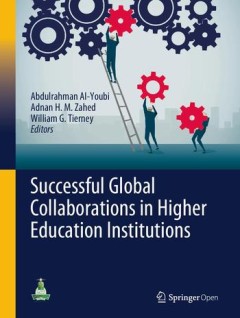
Successful global collaborations in higher education institutions
This open access book presents deep investigation to the manifold topics pertaining to global university collaboration. It outlines the strategies King Abdulaziz University has employed to rise in global rankings, and the reasons chosen to collaborate with other academic and research institutes. The environment in which universities currently exist is considered, and subsequently how an innovat…
- Edition
- -
- ISBN/ISSN
- 9783030255251
- Collation
- xvii, 93p. : ill.
- Series Title
- -
- Call Number
- 378 SUC s
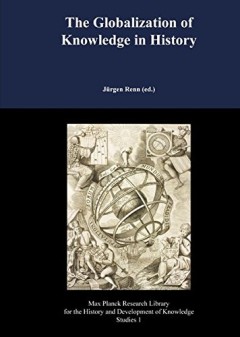
The globalization of knowledge in history : based on the 97th Dahlem Workshop
Today scientific, technological and cultural knowledge is shared worldwide. The extent to which globalized knowledge also existed in the past is an open question and, moreover, a question that is important for understanding present processes of globalization. This book, the first volume of the series "Studies" of the "Max Planck Research Library for the History and Development of Knowledge," th…
- Edition
- -
- ISBN/ISSN
- 9783844222388
- Collation
- 866p. : ill.
- Series Title
- -
- Call Number
- 001.01 GLO g
 Computer Science, Information & General Works
Computer Science, Information & General Works  Philosophy & Psychology
Philosophy & Psychology  Religion
Religion  Social Sciences
Social Sciences  Language
Language  Pure Science
Pure Science  Applied Sciences
Applied Sciences  Art & Recreation
Art & Recreation  Literature
Literature  History & Geography
History & Geography